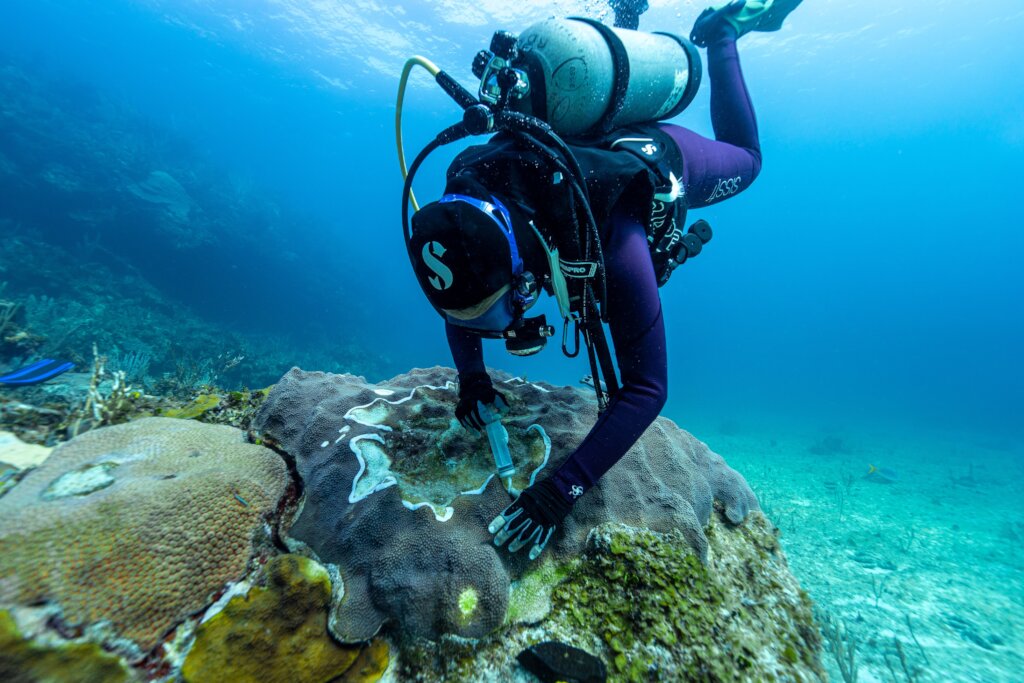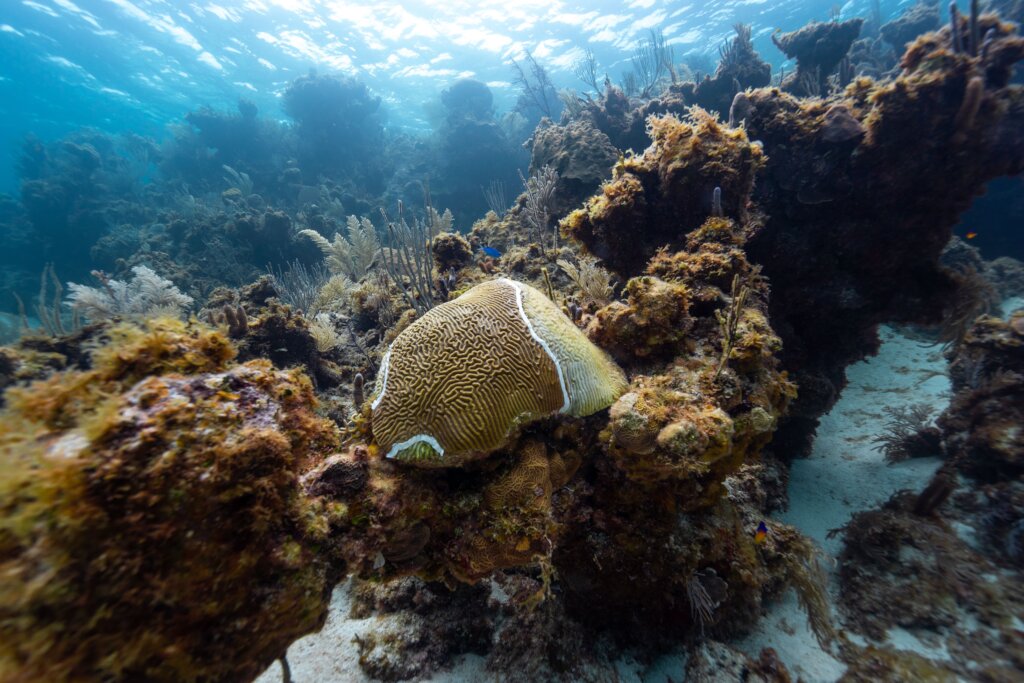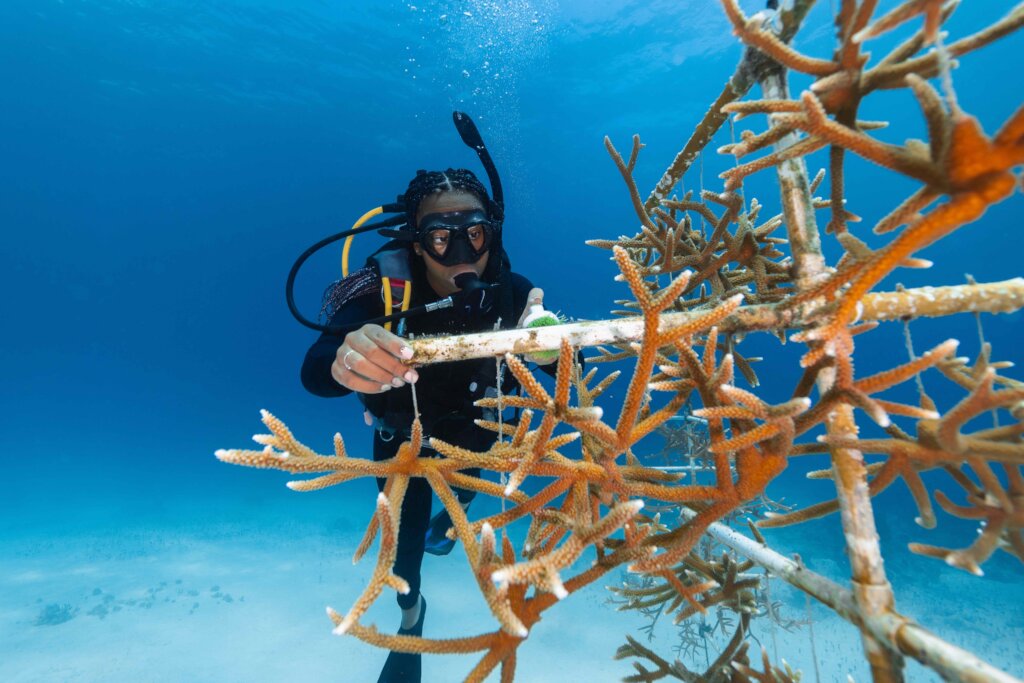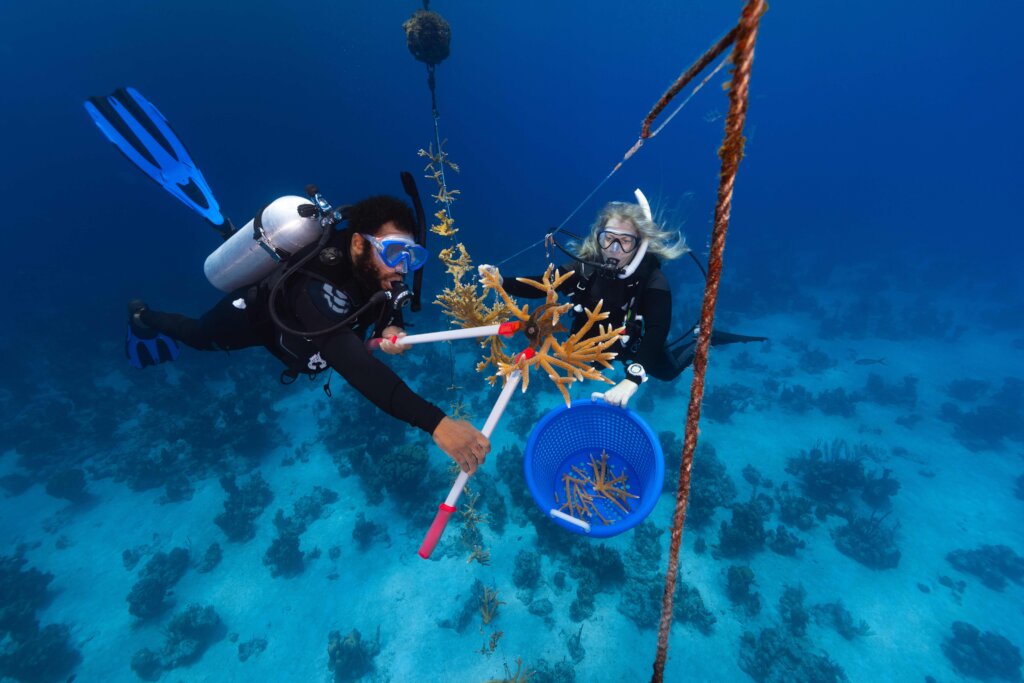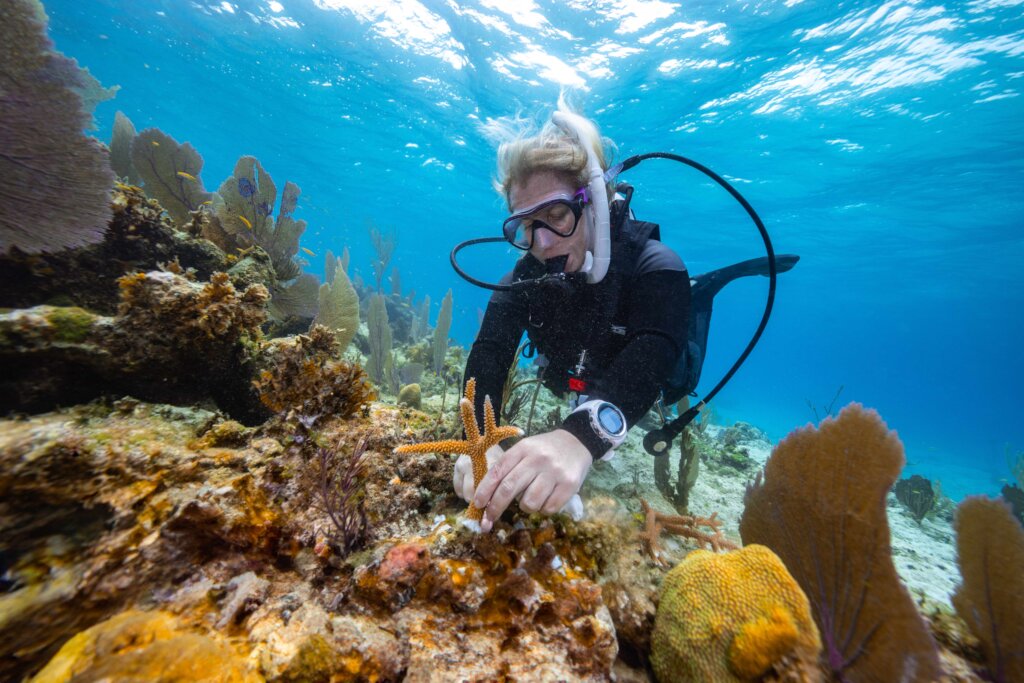By Kemit-Amon Lewis | Special Projects Director
At Perry Institute for Marine Science, we continue to be multifaceted in our approach to curbing the Caribbean coral crisis. Even more so this year, the devastating mass coral bleaching event provides further evidence that our oceans are constantly changing and then we must be proactive in our response to coral reefs threats. In this report we focus on two of our programs: 1. Our response to Stony Coral Tissue Loss Disease, and 2. Our Reef Rescue Network, and the proactive work aimed to saving Caribbean coral reefs.
Stony Coral Tissue Loss Disease (SCTLD) is the latest described coral disease that has devastated reefs throughout Florida since 2014. In late November and December 2019, the first photographs of suspected SCTLD in The Bahamas were taken off Grand Bahama and the disease was verified to have spread over at least 60 km of reef there by March 2020. That year, SCTLD was also verified off the north coast of New Providence over a distance of at least 13 km from Paradise Island and since then it has spread around all reefs around New Providence and Rose Island. Currently the disease has been confirmed in many family islands, including Abaco, Berry Islands, Eleuthera, Cat Island, Long Island, San Salvador and Andros.
PIMS’ coral response team, has been working in reefs around Abaco, Andros, Cat Island, Eleuthera, Exuma, San Salvador, Long Island, New Providence and Rose Island. Prioritized areas visited by PIMS team every one to three months and all corals that are affected by SCTLD as treated following our treatment decision protocol. This year over 5,400 coral colonies have been treated and retreated in different reef areas.
Along with the Department of Environmental Planning & Protection a SCTLD conclave was hosted in April with the objectives to learn about the status of SCTLD in The Bahamas, identify partners response, and discuss effective mitigation strategies and actions. PIMS staff have also conducted a number of training sessions to increase the number of individuals available to identify and treat STCTLD. Lastly, we have been working continually on communications to the Bahamian non-scientific community to raise awareness about SCTLD and other threats like coral bleaching. These communications include webinars, blogs, videos in YouTube, social media posts, and a PSA featuring Angel Cartwright, Miss Universe - The Bahamas.
Our results still support the antibiotic effectiveness to treat SCTLD-affected colonies, and how the number of treated colonies have increased after hiring more people to join the coral response team. We aim to keep growing the team and if possible, to hire and train people in the different family islands.
The Reef Rescue Network (RRN) was established in 2017 by the Perry Institute for Marine Science (PIMS), committed to improving the condition of coral reefs by restoring populations of corals and other species that will build coral reef resilience. It is the largest coral restoration initiative in The Bahamas, and has already expanded to St. Lucia and Aruba. The program works with NGOs, businesses, dive operators, and citizen scientists to establish coral nurseries throughout the Caribbean, grow and plant corals onto degraded reefs and inspire a greater regional conservation ethic. To date, we operate more than 49 coral nurseries though 30 partners with the capacity to transplant 20,000 critically endangered corals. These actions will result in meaningful restoration across large spatial scales to make substantial improvements to coral reef health and contribute to our knowledge of coral biology, ecology, reef ecosystem function and how we can improve their condition.
Specifically, the RRN helps our partners: 1) create coral restoration goals unique to their locations, 2) build coral nurseries, 3) grow corals in their nurseries, 4) outplant corals to reefs and 5) monitor the success of their restoration efforts, from the individual coral through to the entire reef ecosystem.
Just this year, we have certified 10 new PADI Open Water SCUBA Instructors and 26 new PADI Specialty Instructors. We also provided a range of training sessions to 12 individuals that will serve as RRN snorkel guides and 24 school students have been involved in RRN outreach/education events. Despite this year’s mass bleaching event, we were able to outplant 2,450 corals and we captured 29 photomosaics at 29 plots (11 new and 18 repeat). Thirty-three Reef Rescue Divers have been certified, 18 staff have been trained to maintain coral nurseries, 11 have been trained on outplanting and data collection, and 8 have been trained to maintain artificial reef domes.
These two programs are great examples of our hands-on coral reef conservation initiatives. At PIMS, we also remain focused on active mangrove restoration projects, coral reef fish research, are developing a sustainable seafood initiative, and remain connected to community through our Community Conservation Education and Action program. We strongly believe that this holistic approach to coral reef conservation will create the conditions needed for success.
Links:
Project reports on GlobalGiving are posted directly to globalgiving.org by Project Leaders as they are completed, generally every 3-4 months. To protect the integrity of these documents, GlobalGiving does not alter them; therefore you may find some language or formatting issues.
If you donate to this project or have donated to this project, you can recieve an email when this project posts a report. You can also subscribe for reports without donating.
Support this important cause by creating a personalized fundraising page.
Start a Fundraiser